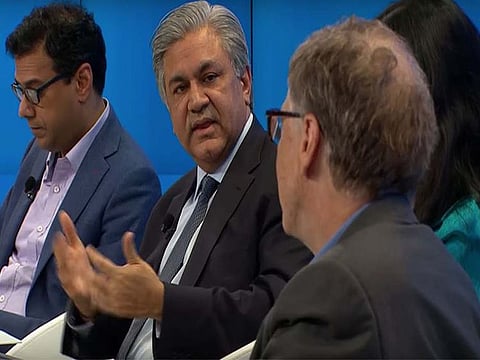Failed private equity firm Abraaj's Arif Naqvi to be extradited to US
London court dismisses contention that his misconducts happened in the UK

London: Abraaj Group's Arif Naqvi lost a bid to fight his extradition to the US, another blow to the founder of what was once the Middle East's largest private-equity fund.
Naqvi should be sent to face American charges of fraud and racketeering, a judge said in a London court Thursday. Prosecutors accuse the former executive of concealing the true position of a fund struggling with a liquidity crisis, while siphoning off hundreds of millions of dollars for his own family.
Also Read: UAE corporate scandals require a clean up
All powerful and then
Founded in 2002, Abraaj grew to become one of the world's most influential emerging-market investors. But the fund collapsed into liquidation after a group, including the Bill & Melinda Gates Foundation, sought to investigate the alleged mismanagement of money in its health-care fund. Naqvi himself was forced to surrender control after it was revealed that the firm's main revenues hadn't covered operating costs for years.
While Naqvi, who suffers from poor health, has made his home in the UK since 2018, "there is no doubt that the US is where most of the loss and harm has resulted from the relevant activity," Judge Emma Arbuthnot said in her ruling.
Jail time
By the time of its collapse in 2018, Abraaj owed creditors over $1 billion. He faces up to 30 years in prison in the US. Naqvi has rejected the American charges, with his lawyer saying at a hearing in June that his "unshakable conviction is that he is entirely innocent of these allegations."
He can appeal the decision, meaning he's unlikely to be extradited any time soon. Naqvi's lawyers couldn't immediately be reached after Thursday's ruling.
Abraaj, which once managed almost $14 billion, collapsed in part because of "a deliberate attack by competitors" and following US concerns over his fund's role in selling a critical Pakistani power company to Chinese investors, according to Hugo Keith, Naqvi's attorney.
The judge dismissed Naqvi's arguments that a large amount of the alleged misconduct took place in the UK. "I did not find anything of the sort," the judge said.
Sign up for the Daily Briefing
Get the latest news and updates straight to your inbox







